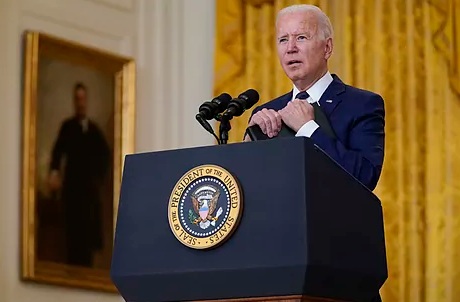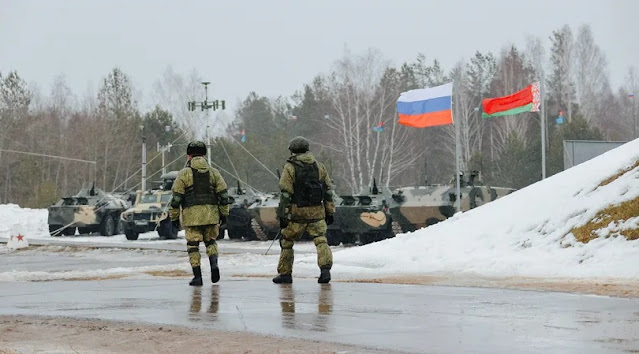Afghanistan Crisis || Nobody Can Get Past The Taliban
LATEST NEWS
After the attack at the airport: US airstrike on Afghan IS offshoots In
In response to the deadly terrorist attack in Kabul, the USA attacked a local IS terrorist group in an air strike. The unmanned air strike in the Afghan province of Nangahar was aimed at "a planner" from Isis-K , said the spokesman for the US Centcom Central Command, Bill Urban. "According to the first signs, we killed the target. We do not know of any civilian casualties." Isis-K is a local branch of the terrorist organization Islamic State (IS). The Americans speak of Isis instead of IS - that's why they refer to the branch as Isis-K. The terrorist militia killed dozens of Afghans and 13 US soldiers in an attack at Kabul airport on Thursday.
Nobody Can Get Past The Taliban
The Taliban want recognition - and they will get it in a certain way, as much as one can hear everywhere these days: Don't! Because yes, normalization of these murderous extremists is out of the question. This self-evident fact, however, does not change the reality that was created with the almost unconditional withdrawal: The Taliban have won the war and are in power, as far as that is possible in Afghanistan. And sooner or later the painful realization will prevail that any influence on the situation in the country must now lead through them. Even: that their rule can be the least evil for the time being. That sounds terrible, and it is - it doesn't get wrong.
The USA has long been operating from this real political standpoint. Donald Trump's dirty deal with the Taliban was the first step, Joe Biden consistently continued down this path : Both presidents made it possible for Afghanistan to be governed by a regime that no one could have wished for. Some of them may not have understood that, but today's US President may have consciously accepted it.
Read more: "It Is A Red Line. We Would React."
What this means has already become more than clear in the past few days. For the hectic evacuation mission, the West became a supplicant; postponing the withdrawal date was still out of the question for Biden, the other nations had to follow suit. Then the explosions at the airport in Kabul, like a glimpse into a dangerous future. The series of attacks used violence to raise awareness that power in Afghanistan is still a long way off. And suddenly the United States was facing a common enemy with the Taliban that made them uncomfortably close together.
Because shortly before the final withdrawal, it is a very specific matter of rescuing too many people left behind , any negotiations or even arrangements with the Taliban may be easier to negotiate. They are not equivalent to recognition, are directly due to the acute situation, you just have to talk to people like that sometimes. But this is how it begins, and it makes little difference at first that there are no official diplomatic relations with an accepted government when the German ambassador Markus Potzel meets the negotiator Scher Mohammed Abbas Staniksai in Doha.
Read also: Top 8 Mighty Masters Of Afghanistan
After all, what else is there but to continue this commitment? The West has given up the militarily based project of building a state according to its own standards in Afghanistan. But the stability of this country must remain his goal for many reasons.
Cruel future in any case
First of all, no one can want Afghanistan to spiral out of control and slide into an ongoing civil war. Where rival militias tear the country to pieces and terrorists with global aspirations make themselves comfortable. The series of attacks from the ranks of the local "Islamic State " is only a foretaste. Preventing this would certainly have been easier without a total withdrawal: Supporting even the worst existing government with minimal military effort would certainly not have been able to keep the Taliban completely out of power, but it would have maintained a weak order that is now threatening to break.
Which in turn, beyond the threat of terrorism, would drive far more people to death or flee than any terror regime of the Taliban. In any case, many Afghans can expect a cruel future, and it should not have turned out that way. Nobody now believes that the humanitarian tragedy would primarily determine the actions of Western governments or even just how their citizens view the conflict. But even those who see the greatest danger at the moment in the fact that too many refugees ask for protection in this country must want to stabilize the situation in Afghanistan. That, too, is an argument for making every effort, albeit a shoddy one.
Read more: The Lost War In Afghanistan
However, the options are meager. No one will march in or take the side of possible resistance fighters in the Pandschir Valley in an adventurous manner; at most, the Americans bomb away one or the other terrorist camp, with or without the consent of the Taliban. What remains is the initially bizarre hope that the hated extremists will actually manage to rule the country. And also realize for yourself that they need support for this (also from other forces in the country).
Because there is currently no other leverage from the outside. Certainly it would be naive to believe that, for example, conditioning financial resources or aid projects could save everything that has developed positively over the past 20 years. Confidence in moderation by the Taliban should not be too great.
Do You Know What we Have Posted on





Comments
Post a Comment